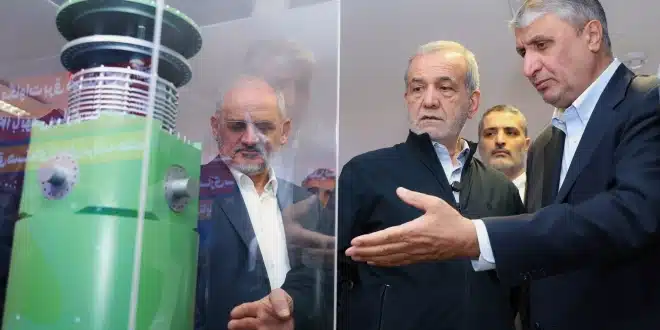Iran has formally ceased cooperation with the International Atomic Energy Agency (IAEA), following a series of military strikes by Israel and the United States on its nuclear facilities. This decision, enacted on July 2, 2025, by President Masoud Pezeshkian, stems from a parliamentary bill passed on June 25, which received overwhelming support from lawmakers and subsequent approval from the Guardian Council.
Background of the Suspension
The move to suspend IAEA cooperation is a direct response to recent military actions targeting Iran’s nuclear infrastructure. On June 13, Israel initiated airstrikes on key Iranian sites, including the Natanz and Isfahan nuclear facilities. Subsequently, on June 22, the United States conducted its own strikes, notably on the Fordow enrichment plant. These attacks resulted in significant casualties, with Iranian sources reporting over 900 deaths and extensive damage to critical nuclear installations.
Iranian officials have criticized the IAEA for its perceived inaction and failure to condemn these strikes. They argue that the agency’s silence undermines its credibility and compromises the safety of Iran’s nuclear program. In response, the Iranian parliament voted to halt all cooperation with the IAEA, a decision that was met with chants of “Death to America” and “Death to Israel” from lawmakers.
Implications and International Reactions
The suspension of cooperation with the IAEA restricts the agency’s ability to monitor Iran’s nuclear activities, raising concerns about the transparency and direction of Iran’s nuclear program. While Iran maintains that its nuclear ambitions are peaceful, the lack of oversight has prompted international apprehension.
In the wake of Iran’s decision, international leaders have expressed concern. French President Emmanuel Macron and Russian President Vladimir Putin engaged in discussions aimed at de-escalating tensions and encouraging Iran to resume cooperation with the IAEA. Meanwhile, Israeli officials have condemned Iran’s move, urging the reinstatement of U.N. sanctions and highlighting the potential risks of unchecked nuclear development.
Despite the heightened tensions, Iranian Foreign Minister Abbas Araghchi has indicated that diplomatic negotiations with the United States remain a possibility. However, he emphasized that any future talks would require assurances against further military actions targeting Iran’s nuclear facilities.


